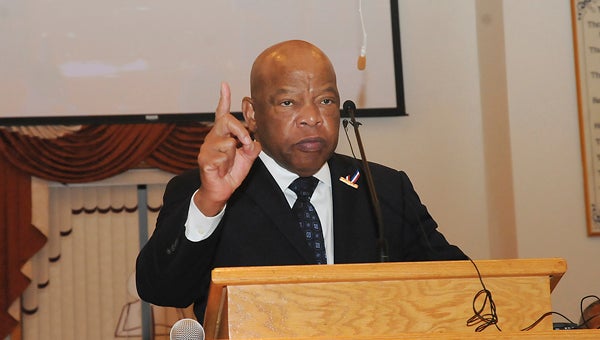BBCF to use grant funds for tech, outreach
Published 2:28 pm Thursday, December 5, 2019
The Black Belt Community Foundation (BBCF) was one of a number of organizations that received a portion of the $1 million in grant funding handed down by Alabama Gov. Kay Ivey and the Alabama Department of Economic and Community Affairs (ADECA) earlier this week to bolster efforts aimed at encouraging participation in the 2020 Census.
The BBCF was awarded $40,000 to raise census awareness through training workshops and other events across the organization’s 12-county service area – according to BBCF Executive Director Felicia Lucky, the organization has been on the ground floor of census-related efforts since the got started.
Lucky said that the BBCF was invited by ADECA to participate in several discussions related to the census to share strategies to improve citizen participation across the Black Belt and attended an ADECA-sponsored workshop in September focused on the requirements for census grants.
According to Lucky, the BBCF has already been designated as one of the entities in the Alabama Hard-To-Count (HTC) Collaborative, alongside the Hispanic Interest Coalition of Alabama (HICA), the Alabama Coalition for Immigrant Justice, the Community Action Agency Association, Greater Birmingham Ministries and VOICES for Alabama Children.
“The Alabama HTC Collaborative’s goal is to ensure a complete count for Census 2020,” Lucky said. “Therefore, BBCF was already committed to improving the 2020 Census response rate across the Alabama Black Belt region.”
In addition to serving its usual 12-county service area, which includes Bullock, Choctaw, Dallas, Greene, Hale, Lowndes, Macon, Marengo, Perry, Pickens, Sumter and Wilcox counties, the BBCF will be leading outreach efforts in Butler and Monroe counties.
The organization had originally requested $65,000 from ADECA, but received $40,000 to serve 14 of the state’s most underserved counties.
“Again, we will have to do more with less,” Lucky said.
The grant money will be used to purchase laptops and tablets to be provided to volunteers across the organization’s coverage area for inputting census data, employing hotspots to provide internet service in rural areas and other locations lacking access to broadband.
“This is one good reason for everyone to be counted in the Black Belt,” Lucky said, referencing the fact that federal funding for projects such as the installation of rural broadband infrastructure could be contingent on census data. “We have no broadband access.”
Lucky said BBCF will partner with the faith community, nonprofit organizations and local education agencies to ensure that all people are accounted for across the group’s service area.
“The BBCF has a network of 120 local grassroots leaders who will help facilitate meetings and census outreach in their respective counties,” Lucky said. “We are a community foundation and this work has to be done in the community. We are ‘taking what we have to make what we need.’”
A lot is riding on participation in the upcoming census, including millions in federal funding and representation in the U.S. House of Representatives.
“The 2020 Census will have a tremendous impact on the Alabama Black Belt region,” Lucky said.
Among the programs that Lucky said could be affected by census data are local Head Start programs, schools, roads, childcare centers, Medicaid, the Supplemental Nutrition Assistance Program (SNAP), Medicare Part B, highway planning and construction, subsidized housing, special education grants and the State Children’s Health Insurance Program (CHIP), all of which are vital to areas such as the Black Belt, which are typically underserved areas with high poverty, poor access to education and healthcare, high unemployment rates, substandard housing and high crime rates.



